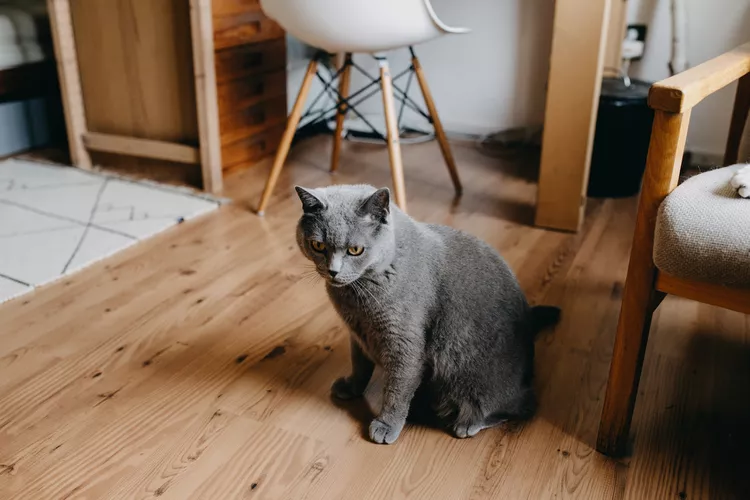Is Your Apartment Big Enough for a Cat?

Some of the most frequent questions asked by prospective cat owners have to do with the size of their homes. There are no quick and easy answers. However, it is safe to say that almost any cat breed can be very happy and comfortable in a small studio apartment. It can also be miserable and lonely in a 5,000 square foot home, if it’s ignored by its human companion. Here are the issues to consider:
Boredom and Interaction
Although cats are not the "loners" some people believe them to be, a cat can remain active and interested in its surroundings, no matter how small, as long as its human companion takes the time each day to play and cuddle with it. After all, this is the reason you're thinking of getting a cat, isn't it?
Containing Litter Box Odors
Litter box odor is controlled by three conditions:
- Choice of cat food: As a rule, premium cat food with few grain fillers will produce less stool odor.
- Cleanliness of the litter box: A box kept scrupulously clean will not produce penetrating odors, even if it is kept in a small bathroom. (If you're cramped for space, there are some decorative litter box enclosures on the market that look like nice pieces of furniture to visitors.)
- Having ample litter boxes: The rule of thumb is one litter box per cat plus one extra. So a home (or apartment) with one cat should have two litter boxes.
Messes and Accidents
If you clean the litter box regularly, it is unlikely your cat will go outside the box. If it does, despite pristine-clean boxes, consider making a veterinary appointment. Urinary tract infections (UTIs) or chronic renal failure in older cats are the most common medical causes of outside-of-the-box accidents.
UTIs should be considered a medical emergency for cats. Also called Feline Lower Urinary Tract Disorder (FLUTD), the common symptoms in addition to urinating outside the box are:
- Straining to urinate
- Meowing or crying while in the litter box
- Excessive licking of the genitals
- Blood in the urine
Cystitis in Cats
Cystitis is another painful cause of cats urinating outside the box. It has multiple causes and can make urinating extremely painful. Immediate treatment is necessary for cats that get cystitis. It isn't surprising that urinary tract problems are a very common cause of cats being taken to the veterinarian.
Cats need acidic urine for urinary tract health. The pH of cat food has a direct relationship here. Although the higher range may vary under certain circumstances, the expert consensus seems to be from 6.0 to 6.5. (The lower the pH, the more acidic the urine.) A pH above this range can lead to the growth of struvites (magnesium ammonium phosphate crystals). A pH lower than 6.0 can cause the formation of calcium oxalate crystals.
Indoor vs. Outdoor Time
Please don't fall for the "fresh air and sunshine" fallacy. Hundreds of thousands of cats live out long and perfectly happy lives as indoors-only cats, as long as they get the exercise they need through interactive play with a human parent. There are safe alternatives, depending on your apartment arrangement. You can screen off a balcony (with the landlord's permission), or you can train your cat to walk on a leash for outdoor excursions.
Have a Large Toy Selection
For times when you won't be home with your cat, several play-alone toys will help keep it from feeling lonely when you are not home. They needn't be expensive, either. We hear that cats are wild about the Yeowww Catnip Cigars, and they also love the catnip bananas. Even paper shopping bags are great free toys for cats, who love to burrow in them like nests. Just be sure to cut off the handles first.
The Short Answer
The amount of love and positive attention your cat receives is much more important than the square footage of your apartment.